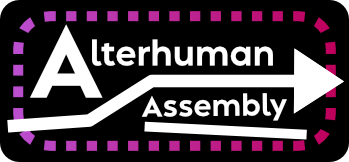Louis de Pointe du LacAfrican American · 25 · He/HimVampire (Formerly Human)New Orleans, Louisiana
Last active 3 hours ago
Don't wanna be here? Send us removal request.
Text

Rest.
The finished armand!! (or second version? I painted over a lot of it)
This is a very small oil painting that was meant to be a study but actually took weeks… as you can tell, I’m very good at not going overboard.

With everything going on re: Assad and amc, I hope I was able to do our boy justice.
336 notes
·
View notes
Text

"Drink up my good man, the Earth's a savage garden"
A young Lestat inspired by the french tapestry manufactory I visited last week and have been obsessed about since ...
289 notes
·
View notes
Text
⚜️ A Beautifully New Chapter for @lestatirl and I.
(French Quarter) New Orleans, Louisiana









9 notes
·
View notes
Text

“Evil is always possible. And goodness is eternally difficult.”
250 notes
·
View notes
Text

flowers growing from the dead, cold things becoming warm 🌸
bookmark design for my claudia's diary replicas <3
3K notes
·
View notes
Text
@claudia-du-lac Absolutely not. 😘





LOUIS AND CLAUDIA from INTERVIEW WITH THE VAMPIRE (2022-) 2.06 - the Light by Which God Made the World Before He Made Light
302 notes
·
View notes
Text


The Reticent Vampire of the 9th Arrondissement.
Photography by @lestatirl
#Louis de Pointe du Lac#LDPDL#Anne Rice#The Vampire Chronicles#Interview with the Vampire#IWTV#Alterhuman#Otherkin#Fictionkin#Real Life Fictional Character#Vampire#Vampire Community#Vampyre#Cosplay
20 notes
·
View notes
Text
Alterhuman Assembly is now open to new members.

We've just created a webring for alterhumans (any and all alterhumans!) called Alterhuman Assembly.
More information can be found on our website. An example of what the widget looks like can be found on our homepage on the left-hand sidebar.
We recently lost the Alterhuman Summoning Circle, a very large webring of alterhumans. We'd love to be able to rebuild such a community of netizens creating digital spaces all their own.
If you have any questions, feel free to reach out to us here on tumblr or at ahwebring@proton.me
82 notes
·
View notes
Text
"I don't believe in fictionkin"
That's great. Being fictionkin is part of my identity and part of my life that affects me on a daily basis regardless of whether you believe in it or not.
282 notes
·
View notes
Text
I propose that there ought to be a distinct label for fictionkin whose identities are rooted in live-action sources—specifically, referring to media that features tangible actors, sets, and physical environments, as opposed to animation, where characters and settings are drawn or computer-generated.
Animated media has never resonated with my character identity experience, and its dominance in fictionkin spaces often leaves me feeling disconnected from engaging in meaningful and fulfilling discussion.
6 notes
·
View notes
Text


Put your camera away, my American friend. Be one with us.
Jacob Anderson as Louis de Pointe du Lac INTERVIEW WITH THE VAMPIRE | 2.02
2K notes
·
View notes





